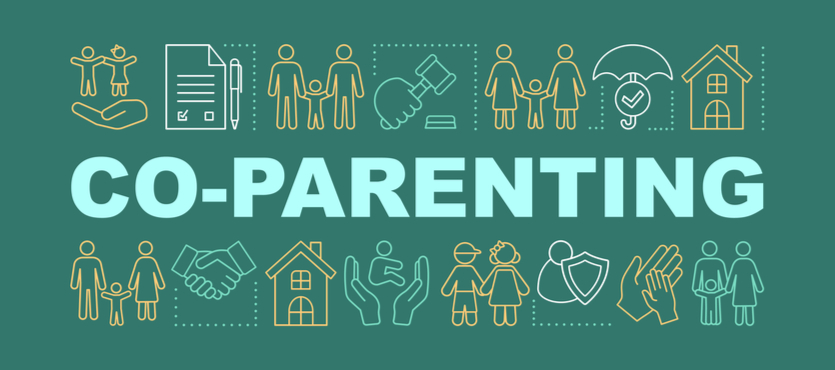Going through a divorce can be devastating for all involved. While the spouses often focus on their feelings, the truth is that children can be just as affected. It will be up to you and the other parent to navigate through this difficult time. While you will likely be feeling extreme stress at the thought of relocation, finding a new home, and possibly even having to get another job to pay for the added expenses of a divorce, remember that the well-being of your children should be a priority.
Even if you and your ex-spouse never communicated well before, you will need to up your game now that you are co-parenting. While you do not need to be on the best terms with the other parent, you do need to be civil and friendly to some degree. Otherwise, your children will be caught in the middle and their lives can be negatively affected for a long time.
If you and the other parent have shared custody of the children, then your ex-spouse will be in your life at least until your child turns 18. So you cannot just ignore them or forget they exist. While co-parenting can be difficult, you both need to make an effort for the sake of the children. Here are some tips for effective co-parenting.
Set Anger Aside
This is the first step to successful co-parenting. You cannot parent effectively with the other parent if you are having trouble setting aside your own emotions. You need to let go of any anger, hurt, or resentment. This will be very difficult, especially if you did not want the divorce, but it will make co-parenting much easier. Your children deserve your full attention, so if you are still feeling negative emotions, discuss your feelings with a therapist so you can move on.
Make Communication a Priority
You and the other parent need to communicate in a way that you are both comfortable. This is crucial. If you cannot communicate with the other parent in person, that is fine, but you need to choose a different method, whether it is texting, emailing, or calling. There may also be online parenting apps available that can assist with communication.
Keeping your strengths and limitations in mind, find the communication strategy that works for your family. Always make sure to keep communication open about your children’s welfare. Do not withhold information or shut down conversations as a way to punish the other co-parent. This only hurts the children, as seeing their parents use the “silent treatment” to attack each other does not set a good example.
Eventually, you both need to be at a point where you can communicate in person without upsetting each other. Make this your ultimate goal.
Avoid Bad-Mouthing
This ties in to the point above. Communication is a priority, but it needs to be the right type of communication. You need to avoid badmouthing the other parent at all costs. As much as you may want to vent your frustrations, do not do it in front of the children. Remember, that person is their parent, too, and anything you say can reflect poorly on them.
So think before you say anything. It is possible that you may need to take some time to calm down. If you do need to vent, choose a trusted friend or family member to confide in. You can also seek therapy and talk to someone neutral.
Keep Consistent Schedules
While children can often adapt easily, they thrive on consistency. They want to have regular schedules. They do not want to be constantly worrying about which parent will pick them up from school or where they will be going on the weekends.
Life is not always predictable, though, and sometimes scheduling conflicts will arise. Work with the other parent to resolve these issues as quickly and as far in advance as possible. Change is hard for many children and some suffer from anxiety and depression as a result, so do your best to put your children first.
Be Consistent With Rules and Punishment
Children like consistency when it comes to rules and punishment as well. This can be challenging, though, as some parents tend to overreact to things, while others are way too lenient. You will need to work with the other parent to come to an agreement as to what things are allowed and what are not. You will need to agree on behavior, bedtimes, screen time, curfews, school activities, and other parenting issues.
If you have joint legal custody as well, you both need to be on the same page when it comes to important decisions, such as education, medical care, and religion. If you and the other parent cannot come to an agreement, then counseling or mediation may be a good idea.
Take Care of Yourself
It is hard to be a parent if you are not eating right, exercising, or getting enough sleep. While raising children is pretty much a 24/7 job, you do have the right to take care of yourself, as well. Practice self-care on a daily basis, whether it is going for a walk, taking a bubble bath, talking to friends, or just relaxing and watching TV.
Seek Legal Help
Divorce can bring out a lot of anger, resentment, frustration, and other negative emotions. These feelings may be transferred to the children, causing everyone to feel added stress and anxiety.
Broward County divorce attorney Scott J. Stadler can help you effectively deal with your child custody matters. Reduce stress for everyone involved. Schedule a consultation today by calling (954) 398-5712 or filling out the online form.

